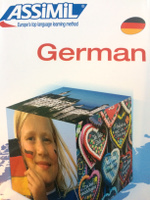I was walking my faithful dog in what could only be described as monsoon conditions, and ignoring the rain, and focusing instead on an Italian podcast when I heard:-
Il piatto del vicino è sempre più buono.
Literally, this means ‘the dish of the neighbour is always better’, and I suppose we should also add ‘than mine’.
The English equivalent is ‘the grass is always greener on the other side of the fence’, often shortened to ‘the grass is always greener’.
The Italian version that I had come across previously was:
l’erba del vicino è sempre più verde.
This literally has the meaning ‘the grass of the neighbour is always greener’.
I wondered if this was a witty play on words, and so I googled finding:-
Il panino del vicino è sempre più buono
Il cibo del vicino è davvero sempre più interessante?
Il fumo del vicino è sempre più buono
I’m assuming that these are all variations on an Italian theme.
As it was still raining and miserable, and like a rat after a terrier, or a dog after a bone, I was intrigued with my initial results and continued on the same theme.
I wondered what the French version would be. Now according to this word reference thread it is:
l’herbe est toujours plus verte ailleurs
which seems extremely close to the English (as does the Italian version), which begs the question as to which is the original version, and where did it come from.
I googled some more and found (Ovid):-
fertilior seges est alienis semper in agris vicinum que pecus grandius uber habet
I translated this as:-
The most fertile crop is always in the fields of another and he has the most fertile cattle.
It is claimed in some quarters that this is the origin of ‘the grass is always greener’. It may well express the same sentiment as our modern version but it is unlikely in the extreme that there is any kind of link between the two. Anyway Ovid distinctly mentions cattle, missing in the modern version.
In my travels, actually in my Oxford Dictionary of English Proverbs (in which there is neither hide not hair of ‘the grass is always greener’) I also came across:
Hills are green far away.
which I will now use as a substitute.
Essentially, despite some enjoyable research, I found nothing of any use to the original question as to the origins of either ‘Il piatto del vicino è sempre più buono …’ or the grass is …
I’ve always found it intriguing how many (almost) word for words translations exist between proverbs in Italian, Spanish and English.
I wonder if some of them entered the English language through French back in the day?
I’ll get back to you on that …
Baci,
Moonface

